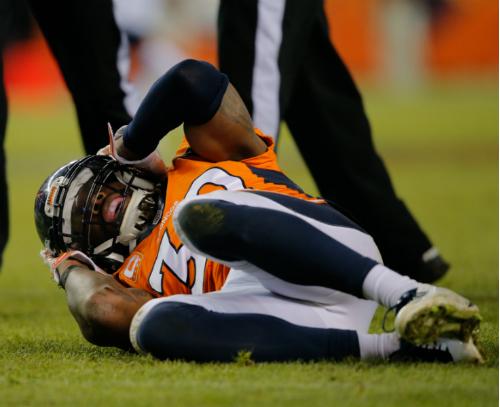Bob Garfield: Until two months ago, Chris Borland was a linebacker with the San Francisco 49ers. Now, he's a civilian. Concussion fears first became big news back in 2007, when the New York Times ran a front-page story about former Philadelphia Eagles safety Andre Waters -- whose suicide led to a posthumous diagnosis of chronic traumatic encephalopathy.
The Waters story spiraled into a 4-year long project at the Times, spearheaded by reporter Alan Schwarz. But concerns about head injuries were on the radar even before then. In 1994 the NFL formed a committee to examine the effects of concussions. Schwarz says the findings from their report were outrageous.
Alan Schwarz: concussions in NFL players are no big deal. They can receive lots of them and basically be just fine. They can be knocked unconscious during a game and return to that game almost immediately and be just fine. And by the way, it's possible this might even be applicable to high school players, they said. Well, of course, when Andre Waters killed himself, the NFL's reaction was, you know what we studied this, and this is just anecdotal, and we don't think it has any significance at all. A lot of people agreed with them.
Bob Garfield: Yeah, who agreed with them? Tell me about the media's response.
Alan Schwarz: I know that the Wall Street Journal came out with an article claiming that these players who were complaining of problems, were probably just trying to set themselves up for a lawsuit, and specifically Ted Johnson, who was a player who was only 34 or 35 years old, but was having terrible emotional and memory problems, that certainly appeared to be the kind of thing you get when you have mishandled concussions. And you know, the Journal and other places were very dismissive of what was clearly problematic. And worth looking into, and worth not dismissing.
Bob Garfield: But in short order, it seems to me that most of the mainstream media picked up on this story and pursued it and did not treat it dismissively, including ESPN, which is a business partner of the NFL to the tune of billions of dollars. They've done some pretty aggressive reporting, no?
Alan Schwarz: Well I think that that's true. There are moments where they really did show a great concern for this issue. Peter Keating, from ESPN, wrote an extraordinary article about the jets and about their lead doctor, who also was the chairman of the NFL's concussion committee. Just mishandling all over the place. And Bob Lee, from Outside the Lines, did very nice treatments of the Andre Waters findings, the Ted Johnson situation. And other things.
Bob Garfield: Only a few years ago, TV announcers, upon a helmet-to-helmet hit that left some guy prostrate, would make insipid jokes about concussions. Now, when you see that unfold on the field, the same announcers gravely describe the concussion protocols, which is quite a transformation.
Alan Schwarz: I actually did a story on the language of concussions, and how the language was changing that you know, dings were out; head injuries were in. And there was less whooping and hollering. And when a player got put back into a game improperly, when he obviously shouldn't have, you know the announcer said so. What they realized what we at the Times were always trying to do, which is what happens on Sundays, happens the following Friday among youth players. And how you describe the events on these nationally televised games affects how people feel about these issues. And let's not make fun of it, because if you do, kids will make fun of it. And they can get really hurt!
Bob Garfield: We just got done speaking with Chris Borland, who told us that while he was sort of vaguely aware of the concussion issue, as a rookie in the NFL, when he started finally digging into the Internet, to find what had been done reported, he was stunned, because until then, his understanding of the issue was limited pretty much to a couple of news articles and a safety poster displayed somewhere in the locker room. Does that make sense to you?
Alan Schwarz: No, it makes absolutely no sense. While of course I'm intrigued by Chris Borland's decision, which by the way is not unprecedented- players have retired from the National Football League, because they didn't want their heads kicked in- in the past, it was just in a different context. But, I'm sorry, if you're a football player, and he's clearly a bright guy, and you don't know about this stuff, then I don't have a lot of sympathy for you. Now, the NFL should not lie to them, and I think it's fair to say that for a long time, they did. But to claim that they are now, I just think it's missing an important point, which is there has to be some personal responsibility.
Bob Garfield: Alan, thank you.
Alan Schwarz: Oh my pleasure.
Bob Garfield: Alan Schwarz is a reporter for the New York Times where he covers drugs and society. He won the George Polk Award in sports reporting, for articles exposing long-term dangers of concussions.


